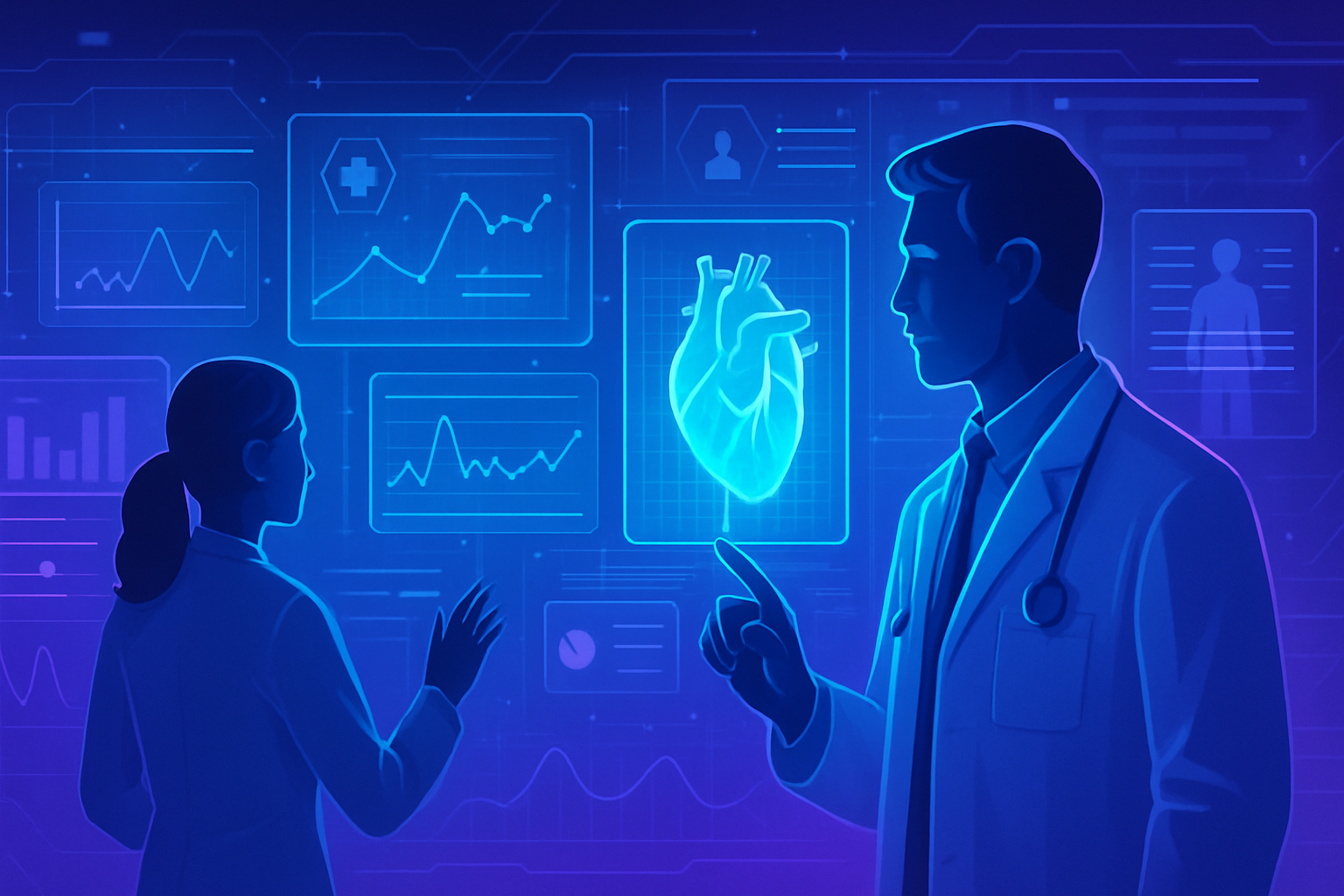The transformation of healthcare requires a radical invention. Data, not only quantitative but also qualitative, offers unique perspectives to improve medical interventions. The emergence of health analytics proposes innovative solutions to optimize patient care and resource management. The future of the sector depends on a *seamless integration* of data-driven innovations. Decision-makers must reassess their traditional approach to fully seize the *opportunities offered by artificial intelligence*. This revolution is not limited to technological tools; it redefines fundamental issues for global public health.
A transformation guided by data
The healthcare sector is experiencing a true revolution due to the rise of analytical data. This change is significant and leads to a marked improvement in the quality of care provided to patients. Healthcare professionals increasingly rely on sophisticated analytical tools to optimize hospital processes and improve clinical outcomes.
Practical applications of data analysis
The use cases for data analysis in hospitals are multiplying. Advanced algorithms predict patient length of stay, allowing doctors to forecast the ideal time for discharges. For example, at Hartford Hospital, the implementation of these models reduced the average length of stay from 5.67 days to five days. This advancement leads to faster and more efficient patient care.
Improvement of human resource allocation
The management of human resources in the hospital field has also been transformed. Analytical systems developed during the Covid-19 pandemic have optimized nurse turnover rates. These tools accounted for fairness and accuracy, reducing overtime costs and making the workplace more attractive for medical staff.
Use of artificial intelligence in care
Innovations in artificial intelligence (AI) play a pivotal role in this transformation. Through predictive systems, doctors can detect potential health threats early, as demonstrated by a case at Hartford Hospital where early detection of sepsis saved a life. AI is becoming an indispensable ally in the medical field, enhancing care efficiency and safety.
Education and ongoing training
For this revolution to endure, appropriate training for healthcare professionals is necessary. Courses are offered to educate doctors and nurses on the use of analytical tools. Such an initiative encourages the adoption of methods and ensures that personnel are equipped to integrate them into their daily practices.
Future perspectives of health analytics
The prospects for the future of data analysis in the health sector are promising. The development of generative AI not only transforms how predictions are made but also enriches the decision-making process of medical teams. This technological evolution will facilitate better care management and pave the way for new paradigms in the treatment of diseases.
Inspiration for other sectors
The transformation of healthcare through data inspires other sectors, illustrating how innovation can rebuild the foundations of traditional practices. The application of analytical models in various fields, including insurance and human resource management, demonstrates the versatility and potential impact of data. This paves the way for a radical reassessment of traditional intervention methods.
Conclusion on the impact of innovation
The transition to data-driven healthcare marks a decisive turning point. From optimizing hospital operations to improving clinical outcomes, this analytical approach transforms medical practices. Expectations for health systems are increasing, and the possibilities offered by data are limitless. This path of innovation aims not only at efficiency but also promises a future where healthcare is both safe and accessible.
Frequently asked questions about the data-driven healthcare revolution
How can analytics improve hospital management?
Analytics enables optimization of factors such as patient length of stay, human resource management, and operation planning, improving efficiency and quality of care.
What are the concrete applications of analytics in the medical sector?
Analytical tools have been developed to predict the risks of patient deterioration, optimize nurse schedules, and manage operating rooms, thus increasing operational efficiency.
How is artificial intelligence transforming the healthcare field?
Artificial intelligence, notably through machine learning, offers predictive capabilities that improve diagnosis and treatment while helping to identify health issues early.
What are the benefits of using data to predict patient prognosis?
By using historical data and algorithms, healthcare professionals can anticipate changes in health status, promoting early interventions and improving clinical outcomes.
What challenges must be addressed to integrate analytics into healthcare?
It is essential to educate healthcare professionals on the use of these analytical tools, ensure data quality, and overcome resistance to change within medical institutions.
How can training on analytics influence healthcare outcomes?
Training enables doctors, nurses, and administrators to better understand and use analytical tools, leading to informed decisions that can potentially transform patient care.
What concrete results have been observed through the implementation of analytics in hospitals?
Hospitals that have adopted analytical systems have significantly reduced their patient length of stay and optimized nursing staff, resulting in increased patient satisfaction and lower costs.
How does analytics help manage the workforce in healthcare facilities?
Analytical tools allow for forecasting nurse turnover and optimizing schedule planning, thus reducing overtime costs and ensuring effective staff allocation.
How are the case studies presented in “The Analytics Edge in Healthcare” relevant to healthcare professionals?
The case studies illustrate real challenges encountered across various clinical domains and demonstrate how analytics can be applied to solve these issues, thereby providing practical and applicable lessons.






